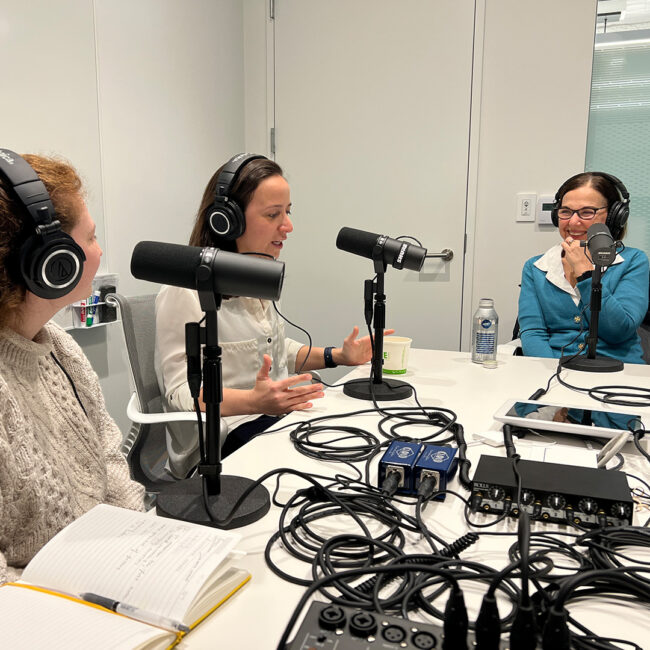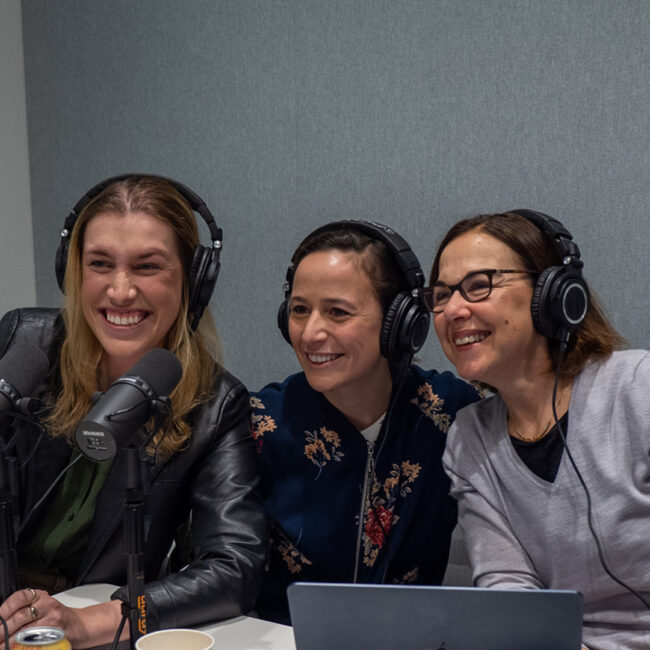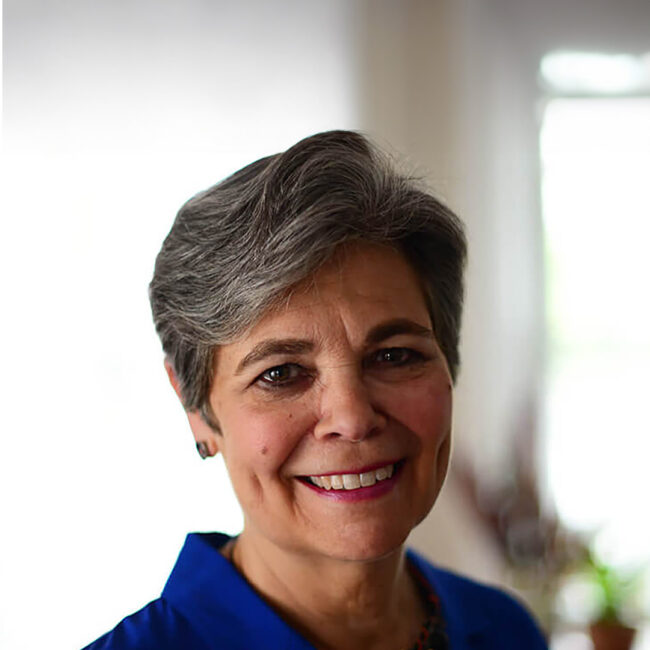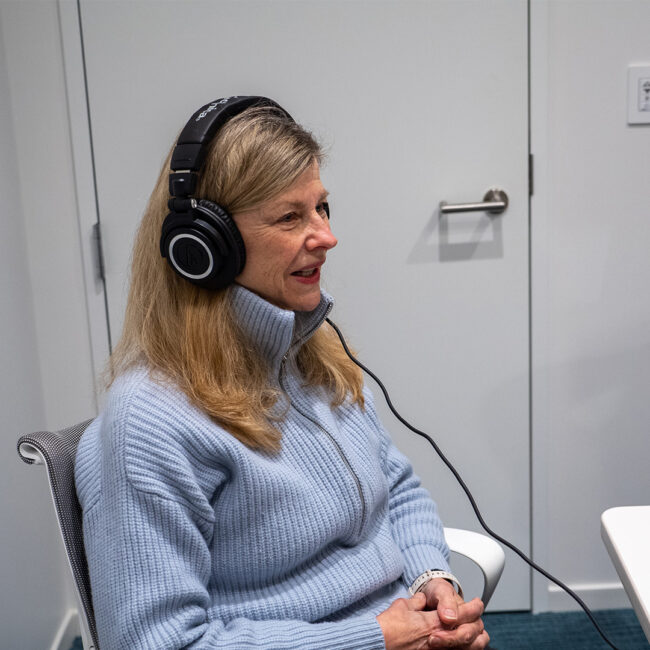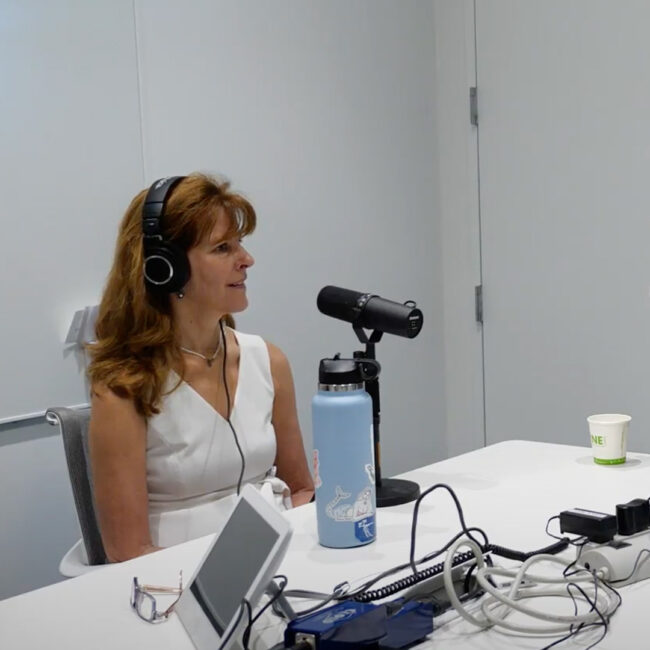
Wise tips from a Cancer Mom: A Conversation with Laura Lang-Ree
Episode Transcript:
Elle Billman:
Welcome to Health After Cancer, a podcast for cancer survivors by cancer survivors. I'm Elle Billman and I'm your host today. In the studio I'm with my co-host Dr. Stephanie Smith. We are joined by Laura Lang-Ree. Laura is a cancer mom and educator, an advocate for parents of kids with cancer, and a writer. As a writer, Laura is a great storyteller, so this episode will be a good one. Laura, thank you for being here today. Can you take us back to the beginning of your cancer story? When and how was your child diagnosed?
Laura Lang-Ree:
Sure. My daughter Cecilia, was diagnosed just before her third birthday in a really pretty unremarkable way. She just started to look a little pale and was sick and we couldn't quite put a finger on it. And she was a really active young child and so it became alarming when she wanted to be picked up and carried all the time and went to the doctor a few times and were told it was just a cold, everything was fine. And mom's instincts kick in and finally went to the doctor and said, "No, we need a blood test." And it was actually Cecilia that night before I asked her, "Sweetie, where does it hurt?" And she went all over her torso and she said, "Everywhere, mama." So even before we had a diagnosis, we knew something bad was up. And sure enough, the next day we found out she had ALL, childhood leukemia.
Elle Billman:
Wow. That is very similar to my story. I was also diagnosed just before I was three. I think I had some more symptoms, but it's a very similar story. Can you tell us about the first time you heard about survivorship?
Laura Lang-Ree:
I do. I can tell you that it was towards the end of treatment, this was back in the early 2000's, we were asked if we would be interested in at the end of treatment sticking around and aside from the protocol post-treatment blood draws where they just make sure the cancer is at bay, they said, "Do you want to come by and just give us some data?" And the impression that we had at the time was that it definitely wasn't a program. We knew that and it was more data gathering to help understand what happens post treatment, which to a family who'd just been through nearly three years of daily chemotherapy did not sound appealing whatsoever. My inside reaction was, "So what's in it for me?" Meaning my daughter as well. So enough hospitals enough, there was no compelling reason to do anything further with survivorship. So that was the first time. And I think the concept of being a survivor, you're scared to talk about early on because you're too scared to think that it could be something you would have the grace and the fortune to have. And I think maybe in the beginning, once we got our heads wrapped around the treatment, we were like, "I think we get this and we can do it." And we knew little families ahead of us who we looked to for guidance and we knew that they were doing better, surely we could do better and that's what survivorship meant to us. But it was when one of our group of six got to her last bone marrow aspirate on her last day of treatment and relapsed that we knew it was game over in terms of the concept of thinking that survivorship was a guarantee.
Elle Billman:
One thing that we have been really conscious of with this podcast is having people who are at various points in their survivorship journey. So one of our co-hosts, Natasha, she, I believe, is two years in remission. I'm 22 years in remission. Can you tell us how your experiences with survivorship have changed over time, especially now that your daughter is years and years off of treatment?
Laura Lang-Ree:
It's changed over time in that it started probably day one, when she was diagnosed, when we really started to think about the implications of being a cancer patient and what all of that medicine could do to your child and what that could look like. And we were told on day one of treatment, very blandly, that she would had a good chance of survival. It was considered low risk if that means anything anymore. And if all things went well, about an 85% chance of survival, which of course to a parent, sounds terrible. But we were told, "She will never do math or science, so you just need to know that." And I can remember being completely horrified by that fact that at three years old you're telling me not only is this disease going to take potentially her life, but who she was maybe potentially meant to be as a human being. And that changed how we thought about survivorship from the get go. So we started advocating for her survivorship then, I would say, because we knew that that couldn't be the only answer. We just knew that it wasn't that simple.
Elle Billman:
Can you talk more about what that advocacy looked like?
Laura Lang-Ree:
Yeah. With specificity?
Elle Billman:
Yes, please.
Laura Lang-Ree:
Absolutely. So with that in particular, it might sound funny to some when you're engaging with a life or death situation, but we had a little three-year-old who was precocious and loved to read and loved anything nature and being outside. So this notion of something was going to be taken further away from her was just maddening. So we did a little bit of thinking and talking and reading and it just occurred to me, well, why don't I ask the person who knows? So I found out who was the head researcher of her protocol and I just called them and I just said, "This is what I've heard. What can you tell us?" And was the nicest human in the world, did not expect a phone call from a patient's mom and said, "Oh, well actually," and gave me whole pages of lists of things that we could do now that would alter the course of how her body accepted and received a treatment in a way that was healthy for her and then processed it out of her.
And we took those notes down to heart and applied every one of them and the outcome was astonishing. She most definitely, and not by us pushing, that's where she gravitated was in the sciences and that's where she remained and it all worked. And it was simple little things that we could do as parents to have an effect on her survivorship years, if we were lucky enough to get there. It was a man and who taught us, "You have time to rewire her brain. So think of it like this, you can do these kinds of games for her and those kinds of activities and be sure when she gets her Vinchristine that you go outside and you sweat a lot and really let it process through. Your going to drink a lot of water."
And really doable actions that were so wonderful to have and made me feel very impassioned to share them with other parents when the questions came along. There was one family in particular that had started sharing ideas about how to survive through this thing because I think we think of survivorship as the day treatment ends, but survivorship, I think, really begins the day you're diagnosed. And I think the sooner that we educate parents on what their options and abilities can be to help their child while they're in treatment, then what happens after the drugs are done is night and day.
Dr. Stephanie Smith:
Absolutely. I mean, I think in the time when your daughter was diagnosed, survivorship was less of a common phrase that people talked about all the time. I think now the field is really moving toward the definition of a cancer survivor beginning at the day of diagnosis for exactly all of the reasons that you highlight this unique experience that we know can touch us and leave long lasting impacts.
Laura Lang-Ree:
And I think it's so important for parents to know it and our medical teams too, that our medical teams have a specialty. And what we want as parents is for our child to survive, number one, no questions asked. And that's their job and you can't get in that way of that. But really, the rest of it is up to you. But parents don't necessarily know what their options are or what they can do. We still live, I think, in a society where we don't have necessarily healthy and open communication with our caregivers and our medical teams, I should say. So figuring out how to teach parents to be empowered to help their child through this is key and is the missing link that I'm still shocked today exists.
Dr. Stephanie Smith:
I think the idea of agency is a really important one and control and how little control a parent can feel or a kid can feel when they're diagnosed and they essentially have to yield to this life-threatening condition that's happening that requires emergent treatment to begin and everything else. And I think from the physician side, we don't always do a good job of recognizing when can we give that control back to someone to really think about that empowerment and that idea of giving someone agency again to ask those questions and try to get at those answers that they're thinking about, that are keeping them up at night.
Laura Lang-Ree:
And it can be big things like what we were talking about, like rewiring a child's brain. Or the little things like how do you, as parents, work towards helping your child come through this relatively unscathed in the sense of can you work with your medical team or can the medical teams offer, "Hey, do you want your poke today on your left arm or your right arm? Or would you like the icy hot or would you like the..." Just those little tiny choices that make such a difference to a small child to feel like they have some control over this ridiculously uncontrollable situation because then they feel empowered to fight and that's what we want them to do. We want them to feel badass and like they can do anything. Not that they're this sick, weak little thing because then they'll start to believe it if we start to act like that constantly by telling them, "Do this, do that. Don't touch this. Here's some Purell." We really can get in their way.
Dr. Stephanie Smith:
Can you tell us a little bit about how you're now taking what you learned through your experience and thinking about how to share that with other parents?
Laura Lang-Ree:
I'd be glad to. I knew at the time that I would regularly say, "I have a book in me," because I feel like the playing field... I don't feel, I know the playing field needs to be even for patients and for parents of kids with cancer, regardless of their mental state when this happens, regardless of economics, regardless of anything, we all need the same data. And there was a small group of us that I mentioned and we would share the data like "This is what I'm seeing with this drug. This is what you can ask for when you're in the hospital. These are all of the different things." And I would keep records of that stuff and hand it on to the next family and the next and it just grew and grew and grew. So back in those days, I would say all the time, "I've got a book. I've got to get this down on paper and get it out of me and let it be with other families where it can grow."
And as everybody around this table knows, it's easier said than done when you go through something like cancer, you're done. And I needed to just walk away and turn the chapter and be done and things would come up here and there where I would talk about it or write about it. But Covid was really the time when it hit me hard that I have the time and space now and this, it actually came up in a class that I was involved in and I knew that this was the time for me to get this out and to get it done. So I started by joining four or five different Facebook groups, which had been so important to me back in the day. Just those groups that I would go to for the data because as we've said, we wanted the data, we know what the protocol is, but we want the other information as parents.
And I figured surely there's six or seven more books because there'd been one at the time, which was great, but that was it. The same book, no new information. And I thought surely by now there'd be some sort of universal, here's how to do cancer for kids thing and there wasn't, so that was just very telling that it was time for me to get it written. So I've been involved with an editor and an agent working to find an agent or a hospital to take the book that I have written and make it whatever form it needs to be. It might be a series of podcasts. I think in my perfect world it'd be something that hospitals just handed to a parent, you've been diagnosed, here's the first three months, go. So that they have something from someone who gets it and in a voice that's relatable because in some other research I've done, there are some hospitals that do it better than others. There's some information, but it's done from not the voice of someone that has been there, done that, which makes a huge difference.
And it's not quite the depth that you're looking for when you're trying to save your kid. So that's my ambition is to get this book, into the hands of families who need it and translate it into all the languages so that it's just common knowledge that we all have and we all share if our child is diagnosed with cancer.
Elle Billman:
Something that I think about a lot is how children who are treated when they're very young learn the information they need to appropriately manage their health in the future, especially when they're treated for something like cancer. And it can follow them around with late effects and long-term effects. Can you share if you and your daughter ever had a conversation where you went through her medical history and if you did what that was like?
Laura Lang-Ree:
The whole process was really an open book with the whole family. So it was never something that we hid behind and at the time, her experience was, for lack of a better word, positive. We made it as fun as we possibly could. So she ended up coming out of it just ready to roll. We didn't engage with her about things that would, I think, have been not powering. So for example, when she started kindergarten, she was still on prednisone and we'd let the teacher know that she would occasionally be running in circles or hiding under the table depending on the mood. And we let that be handled rather than involve her in it. As she really got off of treatment, we really felt more strongly because we really didn't have any other guidance either, that our job was to let her be a kid and just to play hard and to have fun and if she brought cancer up, great, we would talk about it. Otherwise it's not really part of her narrative and she didn't bring it up in a way that wanted it to be part of her narrative.
So that really didn't hit until, I don't think... I feel so guilty about this now, but in eighth grade she won the science award at a very sciencey kind of school and that was the first time I ever told her anything about that stuff because it wasn't her cross to bear. That's a strong opinion that my husband and I share is to not let our children necessarily see how we're suffering in all of this because you want to lift them up. So we had not had those conversations because if you tell a five-year-old, "Your white matter may have been destroyed," it's just not the message. So we said nothing and she had won this prize and I thought, "Surely she won't care." So told her the story and it really impacted her not necessarily in a positive way through college that she felt like, "Well now I have to prove myself." So I think less is more. I don't think there's any reason unless it's brought up. Of course, it's not an elephant in the room at all. It's something open to be talked about. There's some really neat programs now for aftercare where you can hand that baton more fluidly and really take the parents out of it because nine times out of 10, it's at an age where you don't want the parent telling them what to do because they're likely going to be saying no. So you want that to be doctor patient shift, which is way before 21, much, much, much younger so that they feel the agency to go, 'Hey mom, I need to make an appointment with," or get to the point where they can just make those appointments themselves. So it was very clumsy for us. I think we're in a good place now, but very clumsy.
Dr. Stephanie Smith:
I think those communication struggles are so universal when we think about the shift that happens over time as a child ages, as they go from being a little kid where clearly the medical conversations happen between parent and doctor or parent and nurse. And as the child gets older, at some point, they become a really important part of these conversations, but the lesser involved part. Especially if they're in a clinic visit and their phone is a lot more interesting than the boring stuff that mom and dad and clinician are talking about, but at some point, they really need to be the agent. But there's got to be some kind of a back and forth conversation between the parent, the child, who's now a teenager or a young adult, and the clinician to figure out how do you share all of this information in a way that is empowering, that's not overwhelming, that just becomes part of what you probably need to know about your past so that you're not having questions 20, 30 years from now about could this have been related?
Laura Lang-Ree:
Mm-hmm, or is there anything I can do about it?
Dr. Stephanie Smith:
Yeah, exactly. How do you take that and make it actionable to say, "Well, these are the things that we can't control, namely the drugs you got and what some of those known side effects are, but these are all the other things that we can control that may mitigate some of those things or just make this never be a problem for you."
Laura Lang-Ree:
And maybe it's something like, I don't know if all pediatricians do this, but when our kids hit probably 16, our pediatricians said, "Mom and dad, you need to leave now." And then that's when they got the sex ed talk. So maybe it's something similar like that in aftercare for childhood cancer patients where it's like, "These two visits are without mom and dad."
Dr. Stephanie Smith:
That's exactly what we're trying to do more of is in a visit, have that one-on-one time with a parent, have the one-on-one time with a teenager because there's some things that you just don't want to talk about in front of a parent or some things that a parent doesn't want to talk about in front of a teenager that are still really important questions. But I would say it's an area that we're all, as a field, we're not where we need to be, but hopefully, there's a path forward with more parent voices coming into it, more teenagers and young adults coming into it and saying, "Hey, this is what I want to know and this is how I want to know it."
Elle Billman:
It's really validating and exciting for me to hear Steph, who's a physician and Laura, who's a parent, agree that there needs to be more one-on-one time between survivors, especially if they're teens or young adults with their physicians. I couldn't agree with this more, and I can just share from my perspective as a former teen.
When I was a teenager, I had regular follow up appointments with physicians because I was dealing with some late effects from my cancer treatment. The late effects specifically were delayed growth and delayed development. As a teenager, this was tough for me. It was hard for me to acknowledge and accept that my body was different at that time and it wasn't doing what it was supposed to be doing given my chronological age. It was hard for me to talk about really with anybody and that included my parents and physicians. So when I had medical appointments with physicians to talk about my body and my parents were present as well, I often felt like I didn't really want to share everything that was on my mind and I didn't want to ask all of the questions that I had because I just didn't really want to be in the room that I was in with my physicians and my parents.
I do recognize, of course, that my parents and my physicians only wanted the best for me and they wanted to make sure I received the care that I needed. But I just think as a teenager and a young adult who's trying to understand their health history while also dealing with late effects that they don't want to be dealing with, it can be difficult to have open and honest conversations when there are so many people involved.
I'm sharing all of this to just further support that I definitely agree there needs to be more one-on-one time between survivors and physicians. But I also of course, recognize that parents or caregivers very much are invested in their children's health and need to be included in the conversation, but maybe can be included in a different way so that survivors feel they can talk more freely. In thinking about my late effects and sharing that with you, Laura, I'm remembering how much uncertainty was common for me, especially during that time as a teenager and trying to overcome the late effects that I was facing. Can you share if your daughter ever faced uncertainty related to her health after cancer?
Laura Lang-Ree:
Yeah, it was actually really, really recently. I think we were pretty able to close the book on cancer for quite some time, which was a joy and a privilege. So that was fantastic. And I think a lot of that had to do with the steps that we took when she was in treatment to handle the after effects after treatment. We were really pretty aggressive about that stuff. So things were going along great for quite some time. And in her early twenties she was working for a company and working on a fertility project and just pinged me on text like, "Hey, just checking in again on this whole fertility issue. I'm good, right?" And I'm like, "That's what they told us." This POG has had no indications because we had asked when she was small and then when she was more elementary, "Should we harvest eggs? Should we harvest eggs?" And we're told no, because that's the data they had at the time.
So she ended up taking this at-home test where you test the viability and health of your eggs. And she was 24, something like that, and had the eggs of a 36 year old, which is pretty startling. So quickly got in contact with her oncologist and in very short order we were put in touch with our hospitals fertility clinic that now existed that takes care of children who have gone through the exact same thing and harvest the eggs and boom, boom, boom, it was done. Which was lovely and my question was, where the hell was this? So clearly, at some point, somebody got the data, why was the data not shared? And this was handled the minute it was known because the facility was up and running, it wasn't something brand spanking new. So that was an unforeseen challenge for sure.
Elle Billman:
Yeah, I do want to share that I heard a very similar story to your daughters and it prompted me to actually get my fertility checked out, so I appreciate you sharing it. And I just wanted to share that the fact that you share it does have an impact on listeners.
Laura Lang-Ree:
We have to share. Just knowing the questions that we can ask, just to be part of the medical team, just knowing what we should be asking, that's our job and knowing when to ask them is so important.
Dr. Stephanie Smith:
I think one of the challenges too is that we are still learning the potential long-term complications related to cancer therapies because in the scheme of medical treatments, these are all still relatively new, even though it's been many decades now. We're still learning from folks who are now becoming older adults who were treated in the 1970s, 1980s, 1990s, and are still connected to research studies and reporting back health concerns that arise. And then the data analysts are trying to understand what are the associations between certain therapies and certain late effects or possible toxicities. And the trouble is that data continues to emerge over time. And how do we reach families who aren't connected with their treating physician anymore, aren't connected with a cancer program or a survivorship program to make sure that that up-to-date, real-time information gets down to the people whose lives are really impacted by it?
Laura Lang-Ree:
And it's interesting that when you sign up for a, do you still call it a POG?
Dr. Stephanie Smith:
It's different now. So POG joined with CCG, which became COG.
Laura Lang-Ree:
COG, okay.
Dr. Stephanie Smith:
So Pediatric Oncology Group was POG, and then there was the Children's Cancer Group, which was CCG. They were two different pediatric oncology clinical trial groups within the North America. And then around early 2000's they merged and became Children's Oncology Group or COG. But anyway, it's all the same. It's the same backbones, the same treatments, just given in slightly different flavors.
Laura Lang-Ree:
Got it. It's so interesting that those databases that when you're signed up and you literally sign your life away, that that's not tracking people. It's fascinating.
Dr. Stephanie Smith:
It's not so it's tracking... This frustrates me to no end as someone who thinks a lot about the lifelong perspective of childhood cancer therapies, the fact that we've made so many advances in how to cure, how improve our treatments through these cooperative group clinical trials, but the data collection because of financial constraints and the fact that funding agencies are limited in what they can fund only collect data to, let's say, five or 10 years out. So they're looking at the primary outcome of survival and relapse, but they're not actually collecting data on long-term related effects unless they specify that as a pre-specified aim. And even then it usually doesn't go for a long time. We have large studies that are retrospective, but now prospective. So they have gathered people who were treated historically and folks who are willing to continue to report back on their health for decades, essentially lifelong if they're willing to participate throughout their lives.
And that's where we've learned a lot. But there's the time lag because it takes time to see what happens for that to report back for then that to inform how we treat people upfront and how we manage to get that information back to kids who are now young adults who may be living distant from their initial treating center. And then it gets even more complicated when we think about some of the newer cancer therapies that we're giving and how little we know about potential long-term complications. So this will continue to be a problem that we need to keep thinking about how we get this information back in real time to families in particular if they're no longer connected to their care team.
Laura Lang-Ree:
It's interesting. It makes me think, it circles back to, what can I do now then? I'm just diagnosed. What are the simple steps I can take to help my daughter, my son, my child, assimilate the medicine at the highest level and get it the hell out of their bodies as safely and quickly as possible? And what are the simple steps that parents and families can take and would that have any impact on what's going to happen afterwards in terms of how much they're going to have side effects? It's just an interesting question.
Elle Billman:
We had my mom on the podcast and we asked her, "What do you think could be improved about survivorship care?" And she said that mental health support for the entire family was an area that she felt needed some improvement, especially 20 years ago when I was being treated. I'm curious to hear what you think could be improved, and then also if you resonate with the need for more mental health care for the entire family.
Laura Lang-Ree:
Yeah, I think that's an easy one. More mental health care for the whole family. And regardless of the age, we were part of a community of child cancer support group that happened to have art therapy while the parents had regular therapy that we were very attached to for three years and that was a lifesaver. And we could go there and did go there afterwards. And the way that it impacts entire families is huge. And that was something I learned in my research and is a devoted chapter is how we respond and react to siblings and entire families because it's not just the one person who's in treatment, it's everybody. So I completely agree with what your mom said, and I just think it's as simple as the survivorship, we just don't have a system. I think it's just that simple.
Dr. Stephanie Smith:
In my mind, I think we need a way to keep people connected to a certain extent so that information can trickle down in real time so that people aren't left wondering if something comes up 10, 20, 30 years later. But our healthcare system isn't totally set up well for that yet.
Laura Lang-Ree:
Yeah, I remember talking with a doctor recently in researching a chapter who was saying something like, "We make the survivorship optional on the last day of treatment.' And my reaction was, "Oh no, no, no. Time out." You got to start way before that. Even if it is that care to survivor, I mean you surely even, I can understand that your medical team would be reticent to guarantee anything or to give the illusion of, because it's scary and you just don't know. And yet, at some point, halfway through treatment, something you start to have to change that conversation too, "This is what survivorship is going to look like, and as soon as we finish that last day of chemo, then you'll be back for this." So that there's an understanding that there's a process to it and it's not an optional drop off a cliff situation because if given that option like me, we're going to wave and say bye-bye.
Dr. Stephanie Smith:
Yeah, absolutely. I think that it also brings up the difficulty of transitions, from going from being on treatment, seeing people so regularly, having a regimented plan to being off treatment and the ambiguity that comes with all of that.
Laura Lang-Ree:
For me, on the parent end of things, the message that I'm giving parents in my book and in my articles is that normalcy you're talking about is key to survival, to keeping your family life and your own mental health a little bit more stable is by focusing on just the everyday average ordinary, dumb stuff that you have to do and not showing it, broadcasting it to the rest of the family when you're about to have a meltdown, but rather, finding a little closet to go in. Do that privately. But we would do things like, I can remember distinctly when our nurse gave Cecilia the option, did she want her weekly methotrexate shot in her thigh done at the hospital or by her mom and dad? And she said, "My mom and dad." We almost died. And it was actually ended up being the biggest blessing. It was terrifying to come home with the toddler in the house, giant thing saying biohazard and all the meds and be trained, and we'd look at each other like, "Do we really know what we're doing?" But you normalize things in the sense of for that, for example, we always made it a certain night and Dragon Tales was on the TV and her and her sister got to pick tacos and then she'd sit in our lap during Dragon Tales and she had the countdown for the thigh. Little sister would grab the hand, I would grab the other hand, Arna would impale, one, two, three. She didn't say a peep, didn't cry, nothing. Insert popsicle, we were done. And life went on like normal. Then that was just normal. And when she had to get her weekly blood draws, we normalized it by doing them locally as opposed to going to the hospital.
But just knowing you have that choice as a family is even super obscure. And so we would bike to our local... I'd load up the girls in the trailer with snacks and cookies and they just thought it was a fun afternoon. And we'd go and the phlebotomist knew us. And again, same thing, Cil was on my lap, did her count off, she picked the arm she wanted, Maddie grabbed the other hand, one, two, three, insert, done. We went and got bagels. No one cried. It wasn't a thing. It was just, "Oh yeah, that's just another errand we're running this week." And then meanwhile, of course, in my mind I'm like, "Is the fax back yet? Is it back yet?" Because that's what we do. And biked back and they're happy with their bagels. And I could go to the fax machine and go, "Yep, she's good," and check it off. So normalcy, it does sound daunting and until you're living it and you don't have a choice, it sounds horrible, but it's what saves it. I'm a teacher and I can remember going in the classroom, and that was the one time I could go, "Okay, I can just be normal."
Dr. Stephanie Smith:
I think it always strikes me how well kids adapt to things and truly can thrive despite going through some of these intense, unfair challenges.Laura Lang-Ree:
They absolutely can. I think one of the things that we did, I mean, you certainly know, as parents listening, who your friends are when this happens because many disappear. And so, when she had her six normal hospital stays or consolidation, the ones that were there and were offering to help, we lined up to come to the hospital and we would come out of that room, sit and play games, have a picnic, goof around and one of those little girls is going to be at Cecilia's wedding in October. So there's that kind of thing, which is really special. I impart this to any parent listening, if your child is well enough and your ANC is doing okay, if you still call it ANC, then just put a bunch of Purell in your pocket and let them play.
And I think that's the pivotal thing. Let them go to all the birthday parties, maybe don't have tons of cake and crap at your own house, but let them just go be a kid. You see something gross happen. Cecilia would just, she'd know. You'd saddle up next to her and she'd just do this and you squirt in her hand and that was it. And you don't make a thing out of it and you very quietly tell your friends families, if someone's sick, just text me and we'll just... But you don't necessarily talk about it so that they feel free to have all the friendships and not feel isolated. My heart goes out so much to the families that had to do this and do this during Covid because that was just a double slam.
Dr. Stephanie Smith:
Laura, is there anything else that you would like to tell other parents listening or young adults who might be listening who may have had a history of cancer as a kid or anyone else who might be tuning into this podcast?
Laura Lang-Ree:
:I think for parents, just knowing that there can be help for you and that there are ways to empower yourself and to not feel overwhelmingly defeated by this diagnosis that you and your family have been given. This isn't a one person job. So regardless of your partnership status, find your family, whatever kind of family that is, ask for help and ask for it with great specificity. Even if you don't think you need it, you need it. So ask for help with common household chores. Ask for help with your other kids. Ask for help to be that shoulder to cry on for somebody else. That would be my message to other families is to look for those ways to not only advocate for your kid because no one else is going to advocate for them like you are. That is your job. But to advocate for yourself and your soul, and if you have a partnership, in your partnership, because you don't want to be a victim to cancer as well in your friendships and your love life.
Elle Billman:
Thank you so much for your time.
Laura Lang-Ree:
Thank you.
Elle Billman:
And coming on and talking with us.
Laura Lang-Ree:
Absolutely. Thank you so much.
Elle Billman:
If you enjoyed this episode and you'd like to help support the podcast, please share it with others, post about it on social media, and leave a rating or review. Your hosts today were Elle Billman and Stephanie Smith. This podcast is produced by the Stanford Medicine Ed tech team. Our producer for this episode was Deila Bumgardner. Our creative director is William Bottini. Our sound engineer is Bindu Madhava. This episode was edited by Shanna Polley. Our guest today was Laura Lang-Ree. For more resources and information from our hosts and guests, please visit our podcast website at www.healthaftercancer.com. Thank you for listening.
Meet your hosts:
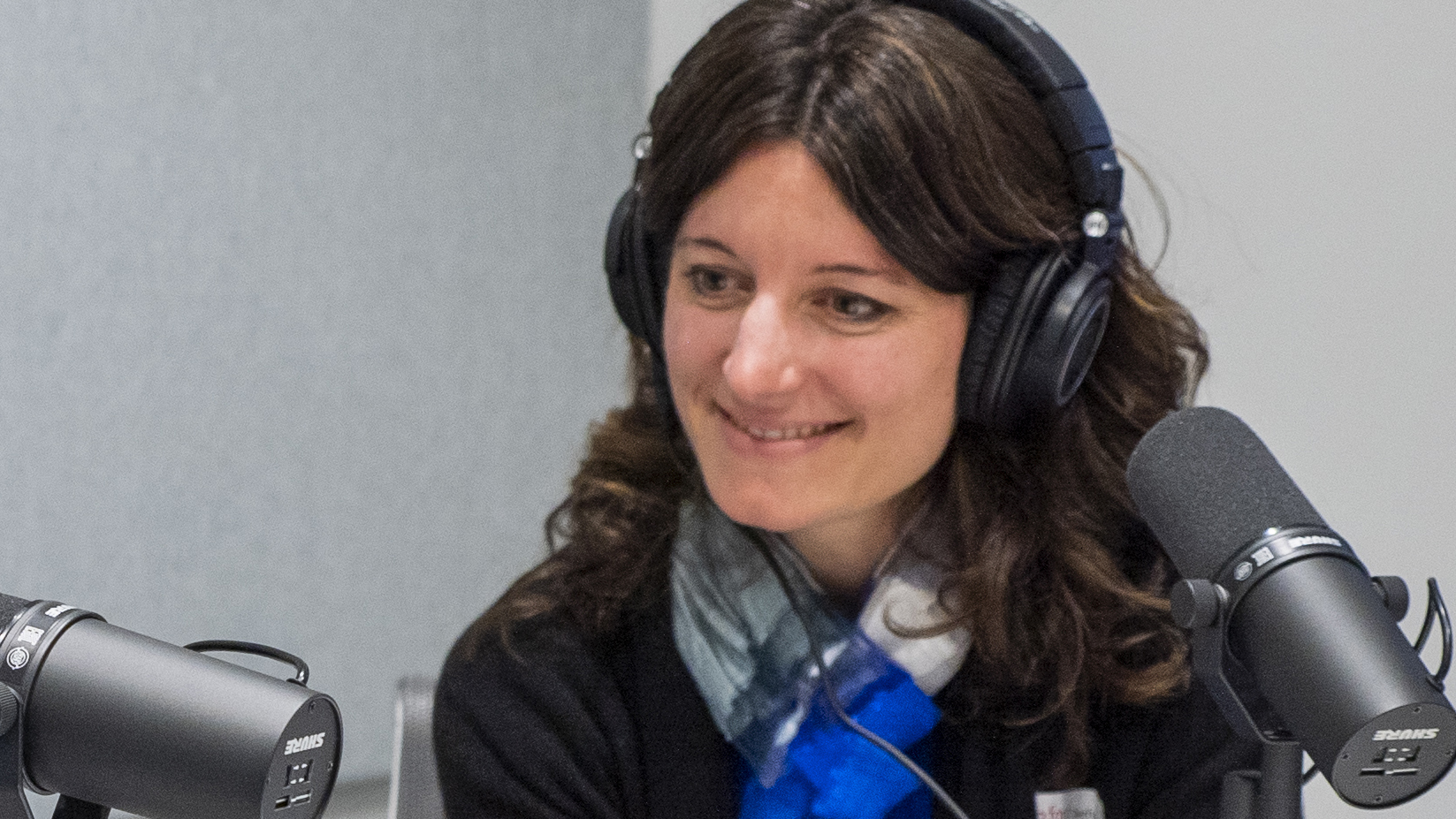
Stephanie Smith
Stephanie is a pediatric oncologist and clinical researcher with a focus on cancer survivorship at Stanford Medicine.
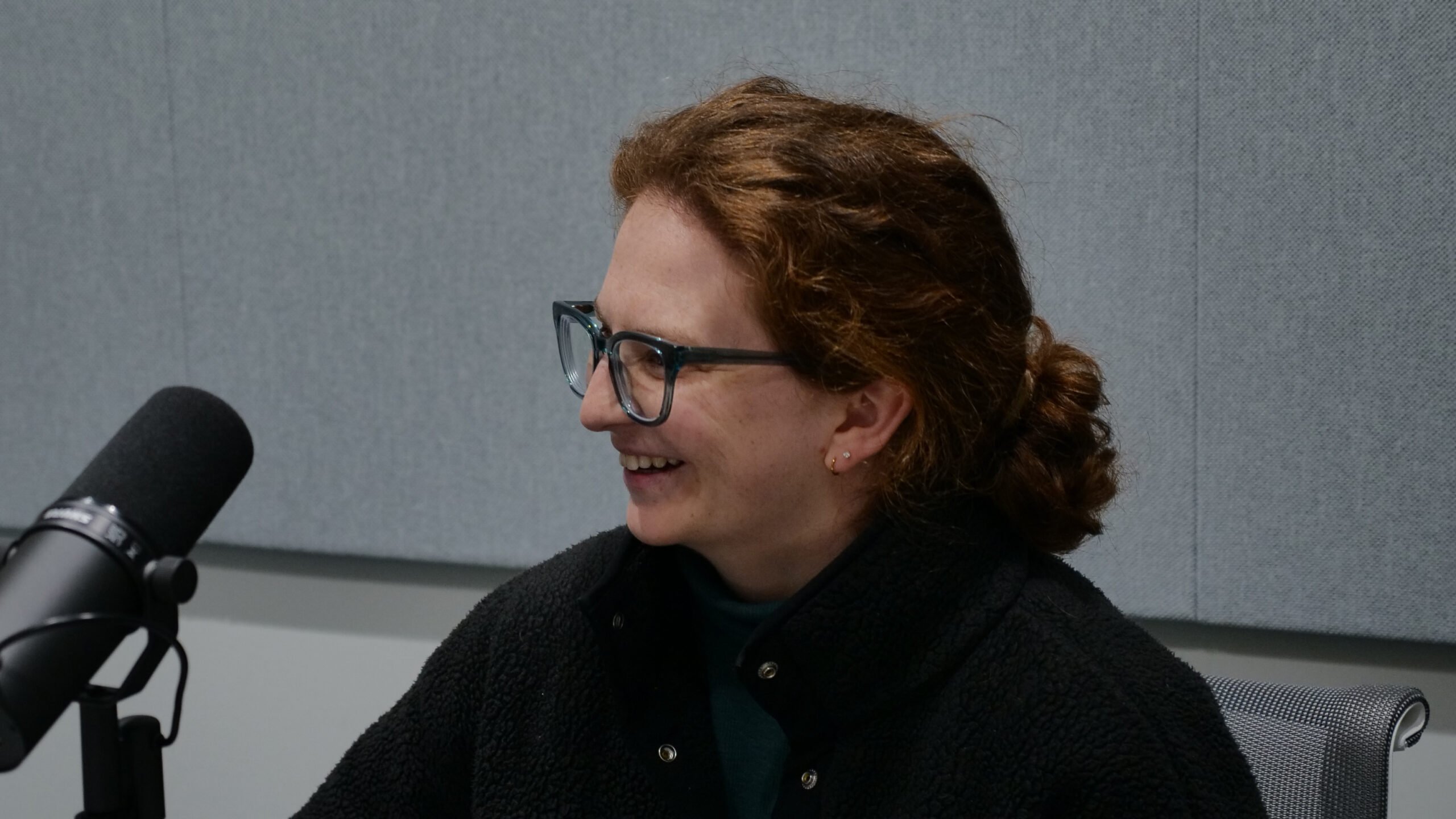
Elle Billman
Elle is a childhood cancer survivor and 2028 MD candidate at the Ichan Medical School, at Mt. Sinai, in New York.
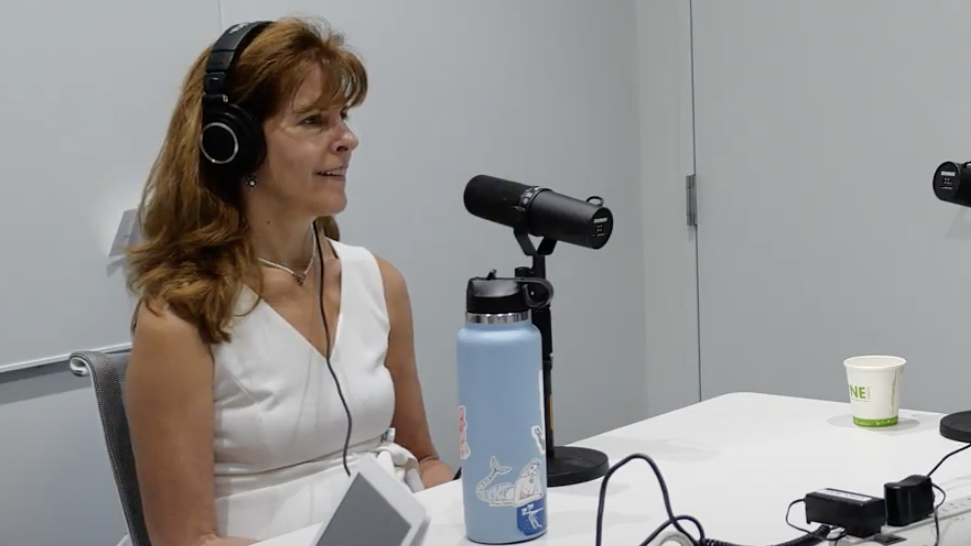
Laura Lang-Ree
Laura Lang-Ree is a cancer mom, educator, and advocate for parents of kids with cancer. She works with Stanford's Bass Center for Childhood Cancer and Blood Diseases as a writer and editor for parent publications and she empowers families in the zone to lead their best life, even amidst trauma. Laura is a frequent contributor to Thrive Global, Upworthy, Elephants and Tea magazine, and Curtco Media and was recently featured on Transformation Radio's Champion Your Life podcast speaking about resiliency in crises. Find her at: https://www.lauradekrakerlang-ree.com


